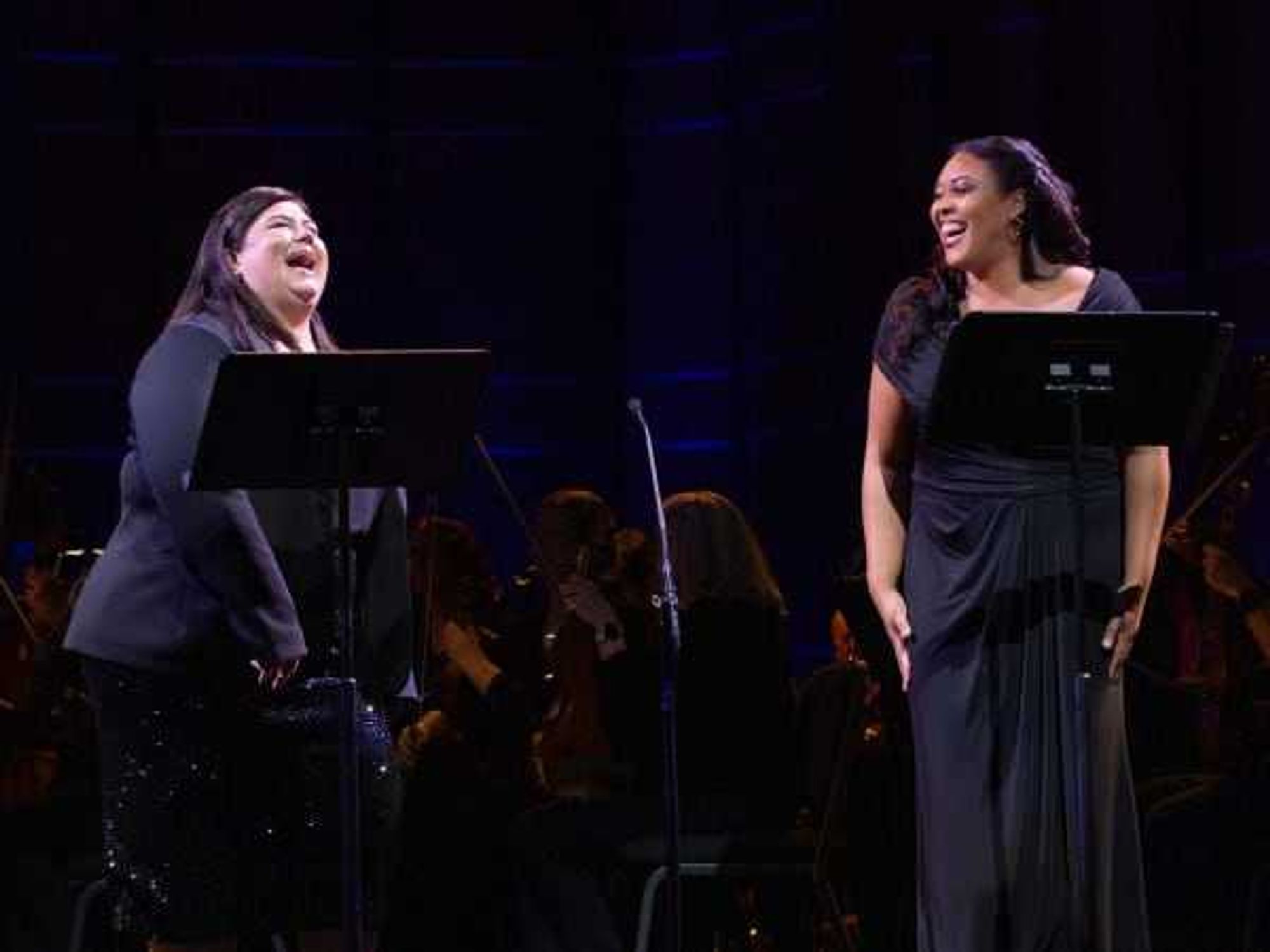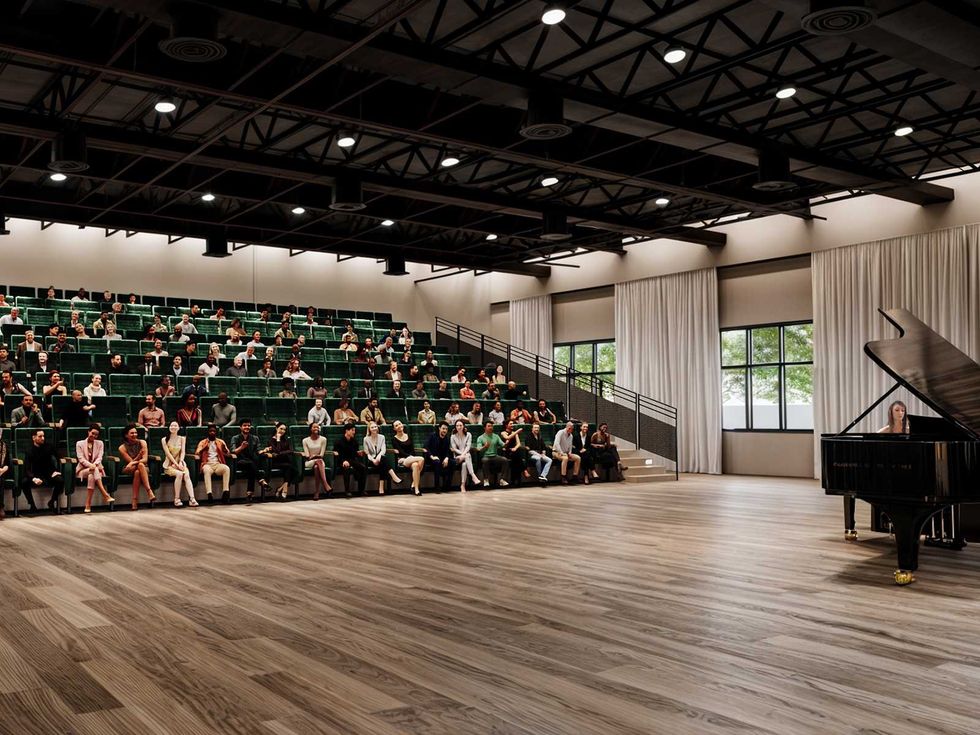Roleplaying Revolution
Huzzah!: Roleplaying and improvisation show is indeed EPIC!
 The giant 20-sided die
The giant 20-sided die Host and creator Alex Gray
Host and creator Alex Gray Some of EPIC!'s improv actors
Some of EPIC!'s improv actors
Our adventure begins where all good stories usually do: the tavern.
A mixed assortment of wanderers share tales as they enjoy plates of spiced meats, potatoes, fruits and cheese at solid wooden tables. A corseted barmaid serves (root) beer to thirsty patrons as a minstrel strums a bawdy tune of weeks past.
A sturdy hand-made throne sits empty next to a giant 20-sided die similar to those used for rolling outcomes in tabletop roleplaying games like Dungeons & Dragons.
That’s because it is, in fact, a giant 20-sided die used in an interactive live-action roleplaying game (RPG) just like Dungeons & Dragons.
Yeah, I’ll say that again: interactive live-action roleplaying game. Yep. Being a nerd just earned you two experience points in Austin.
This is EPIC!, a new level of Nerd that it has to be seen to be believed. And once you do, you’ll never want to go back. You’ll wonder why you never thought of this yourself.
“Once people find us, they love us,” says Alex Gray, the originator of EPIC!, as well as the gregarious and capable host of each night’s festivities.
As a game designer in real life, Gray was one of the original designers of the Dungeons & Dragons world under the name Mike Nystul. (There’s even a spell in the D&D Handbook called “Nystul’s Magic Aura.”)
Years ago, Gray got mixed up in the burgeoning improvisation scene here in Austin, and after meeting like-minded colleagues, got the idea to combine his passion for roleplaying with the quixotic nature of improvisational theater. The idea took off like wildfire.
“This is a great city for this show,” says Gray during an interview in the tavern prior to a show. “With the popularity of improv, all the alternative theater and it’s such a college town. I think this is the perfect time and place to do a show like this.”
Looking around the tavern, the steadily growing crowd matches the type of crowd you would expect for an event such as this. It’s a bit of a Dragon’s Lair/Renaissance Fair vibe with all the laced tunics, leather boots and anachronistic bifocal glasses.
Speaking of necessary excursions from historical accuracy, EPIC! is now housed in two storefronts of the dilapidated Highland Mall, in the same space The Austin Variety Show records their live shows. Throughout the show, muzak plays consistently out in the mall walkway.
Variety Show host Troy Dillinger met Gray through improv theater, and he was open to sharing the Highland Mall space with EPIC! as long as both groups could keep their stationary set pieces intact. Hence the giant throne room and tavern on one side and the red-and-black Austin cityscape on the other.
After the evening’s guests are situated and satiated in the tavern, everyone takes their seats in the larger performance space. The host provides all the necessary information to explain gameplay, and then the fun really begins.
At any given show, audience volunteers are selected to participate in a pre-scripted storyline (or “campaign”) that has been edited and rehearsed to play out in front of them, choose-your-own-adventure style.
The participants encounter dangerous monsters, heroes and villains and constantly evolving forks in the road. Together, the four volunteers must band together to stay alive and advance the mission.
“The best part is seeing how audience members react to the situations we put them in,” says Gray. “There is no ‘normal’ night for us because it’s totally impossible to predict what they’re going to do.”
To make this truly epic, every participating player chooses their own character class that falls under the basic category of a fighter, magic-user, healer or thief. Each of the character classes has special abilities and benefits that make them useful in the storyline as well as in a fight. (Don't worry, the process is incredibly easy to pick up for newbies, and they'll help you make your selections.)
Participants wear provided outfits and carry (simulated) weapons corresponding to their character class. During game play, players arrange themselves in battle formation to take on monsters and other baddies they encounter. Game play is ruled by the host who functions effectively as the Dungeon Master, or rules arbiter.
Helping the DM determine the results of the game, the hysterically oversized and celebrated 20-sided die is brought out for all rolled outcomes of chance. Each time a lock is picked or a spell is attempted, the unwieldy carved boulder is rolled off a raised platform and the result exclaimed by the excited audience.
Upping the entertainment value for the audience, a team of experienced improvisation actors create the enemies the players encounter as well as the scenery, obstacles and non-player characters in the story. The actors know the major plot points that need to be hit in order to advance the scene, but are otherwise free to play freely.
“You really have to be open to what the audience wants,” says EPIC! improv actor Andreas Fabis. “What we’re doing is really the inverse of traditional narrative because the context is constantly changing for us.”
Watching the actors morph into monsters is a particular highlight. A giant sized minotaur, for example, require two actors to work in tandem to play and is, of course, tougher for the players to kill.
Just as in tabletop roleplaying games, participating characters evolve with more experience. Defeating especially deadly enemies or completing a harrowing mission advances a character in levels, making adventures easier and roleplaying personas stronger.
“The best part of this experience for me is the returning characters,” says improv actor LisaMarie Kull. “Characters will remember minor details from past shows we’ve done and use them as clues to solve missions. That relationship with our audience is really special.”
It’s easy to see why RPG and fantasy fans would thrill at the social aspect of the games they already love. What they’re used to playing in basements and gaming stores with friends is actually coming to life instead of just in their imagination. Sure, there’s still a lot of imagination required to fill in the gaps, but the highs and lows are greater with an audience.
“What the players want to happen gets to magically happen immediately right in front of them,” says improv actor Gloria Rabil, who has no experience with tabletop roleplaying at all.
Nerd culture is fiercely embraced and affirmed in this community, making it a safe space to let your pointy-eared, cape-wearing flag fly proudly. Everyone here loves what is happening and shares a common vocabulary, and gamers will especially appreciate the wordplay and inside jokes of the hosts and actors.
“I love that we’re also indirectly teaching non-actors how to do improv,” adds Gray. “As folks keep playing, their growth in confidence is astounding from week to week.”
As a video game and RPG enthusiast as a kid, EPIC! is the real deal. The combination of winking parody and true-to-life game action makes this format just as fun to watch as it is to play. I haven’t donned the robes or taken up the sword of a player yet, but I figure it’s only a matter of time.
“I like to tell my kids this is the Golden Age for Nerds,” laughs Gray. “Now it’s cool to like video games and fantasy. It’s a different time for sure.”
---
EPIC! shows happen on intermittent Wednesday evenings and Sunday afternoons. Wednesdays are EPIC Nights, which offer serialized adventures that follow a plotted trajectory. Sundays are EPIC Quests, which feature stand-alone adventures so more players can participate. Check the EPIC! website for dates and times.

 Ofrenda composer Jorge Sosa with Opera board chair Susanne TetzlaffPhoto by Marjorie Kamys
Ofrenda composer Jorge Sosa with Opera board chair Susanne TetzlaffPhoto by Marjorie Kamys The 180-seat Butler Performance Center as it might look when it is competedRendering courtesy of Austin Opera
The 180-seat Butler Performance Center as it might look when it is competedRendering courtesy of Austin Opera